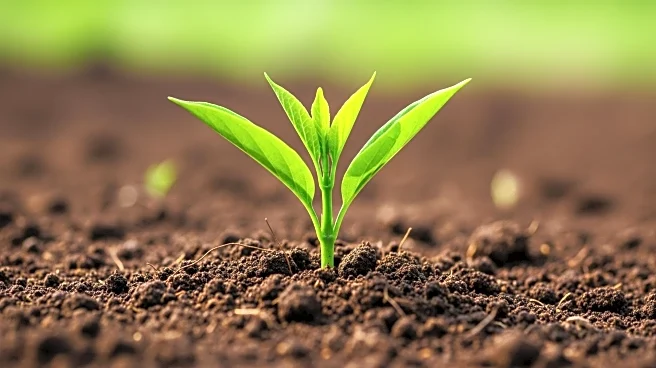What's Happening?
The regenerative agriculture certification, verification, and digital solutions market is projected to grow at a compound annual growth rate (CAGR) of 19.7% from 2025 to 2034. This market encompasses frameworks and technology-driven tools designed to validate and promote farming practices that enhance soil health, biodiversity, and water quality. Certifications in regenerative agriculture serve as official seals attesting to a farm's adherence to specific regenerative methods, aiming to reward sustainable practices and provide transparency to consumers. Innovations in this field include blockchain and distributed ledger technologies for product traceability, digital platforms for automating certification processes, and IoT-based soil and crop monitoring systems. These technologies aim to reduce reliance on manual inspections and create transparent data flows that verify regenerative outcomes such as improved soil organic carbon and reduced chemical use.
Why It's Important?
The growth of the regenerative agriculture certification market is significant as it aligns with rising consumer demand for sustainable and ethically produced food. It supports brand-level commitments to carbon neutrality and regenerative sourcing, and is bolstered by government policies offering incentives for climate-smart agriculture. Farmers and producers adopting these certifications can access premium pricing by showcasing their dedication to biodiversity and climate resilience. The market also fosters innovation in verification methods and incorporates regenerative practices into global supply chains, driving demand for trustworthy standards and transparency.
What's Next?
The market is expected to see increased adoption of digital solutions that enhance transparency and efficiency in certification processes. As more farmers and producers engage in verification processes to validate practices, the demand for third-party verification services is likely to grow. Additionally, advancements in soil health monitoring and carbon sequestration verification technologies will continue to support scalable regenerative techniques, further driving market growth.
Beyond the Headlines
The shift towards regenerative agriculture certification reflects broader ethical and environmental considerations, emphasizing the interconnectedness of ecosystems and the role of agriculture in restoring ecological balance. This movement could lead to long-term shifts in farming practices, promoting sustainability and resilience in agricultural systems.









